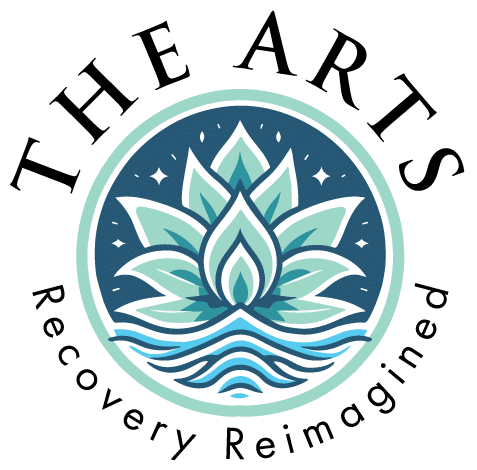The advantages of practicing meditation in addiction recovery are vast. Meditation involves focusing the mind and minimizing distractions to attain clarity and emotional peace. Different forms of meditation exist, such as mindfulness meditation, which emphasizes being present in the moment, and transcendental meditation, which involves repeating a guided meditation led by an instructor through visualizations and relaxation techniques.
Traditional approaches to addiction recovery typically involve therapy, medication, and support groups. Therapy allows individuals to delve into the root causes of their addiction and develop coping mechanisms, while medications aid in managing withdrawal symptoms and curbing cravings. Support groups create a community for individuals dealing with struggles, fostering a sense of camaraderie and mutual support.
Meditation can be a complement to addiction recovery methods. It helps individuals cope with stress, alleviate anxiety and depression, enhance regulation, and boost well-being. By integrating meditation into a recovery strategy, individuals can address both the physical aspects of addiction, paving the way for a more holistic and enduring journey towards sobriety.
Mental Health Benefits of Meditation in Recovery
Practicing mindfulness meditation can assist individuals in observing their thoughts and emotions without passing judgment, which promotes a sense of stability and management. Engaging in this practice may help with regulating mood and can help an individual cope with the ups and downs often experienced during recovery.
Mindfulness meditation enhances sensitivity. By fostering a fully present state, individuals become more connected to their well-being and triggers. This increased awareness enables self-control and the development of more effective coping mechanisms when dealing with stress or cravings. Consequently, individuals are better prepared to tackle the hurdles of recovery, decreasing the chances of relapse.
For example, programs like mindfulness-based stress reduction (MBSR) have proven effective in reducing anxiety and depression symptoms in groups, including those undergoing addiction recovery. These results demonstrate how meditation can benefit mental health and aid long-term recovery efforts.
Physical Health Benefits of Meditation in Recovery
Engaging in meditation can also be effective in lessening the feeling of pain during times of withdrawal. Practices like body meditation involve:
- Concentrating on body parts.
- Helping individuals tune into their physical sensations.
- Noticing sensations without judgment
Similarly, progressive muscle relaxation techniques can alleviate muscle tension and discomfort, relieving withdrawal symptoms. By changing how pain is perceived and reducing its intensity, meditation offers a way to cope with withdrawal symptoms without relying on medication, thus making the recovery process more manageable.
In general, the physical health advantages of meditation make it a valuable asset in overcoming addiction. By enhancing sleep quality, boosting immunity, and addressing withdrawal symptoms, meditation supports an approach to healing and encourages long-term recovery success.
Cognitive Advantages of Meditation in Recovery
Substance misuse frequently results in declines in function, impacting memory, concentration, and executive abilities. These cognitive deficiencies can impede activities and complicate the recovery process. Meditation serves as a remedy to these impairments by fostering adaptability and boosting brain performance. Regular meditation routines can enhance focus and concentration, enabling individuals to excel in their responsibilities and actively participate in recovery-related endeavors like therapy sessions and support group gatherings.
Consistent meditation engagement provides enduring advantages. Research indicates that ongoing meditation can boost gray-matter density in brain areas linked to learning, memory, and emotional control. Personal anecdotes from individuals undergoing recovery often underscore the influence of meditation on their skills, noting enhanced mental clarity, improved problem-solving abilities, and increased dedication to achieving recovery objectives. These lasting benefits are crucial for sustaining sobriety and reconstructing an existence.
Spiritual Benefits of Meditation in Recovery
People need to look beyond things and connect with themselves. By practicing meditation, individuals can become more aware and feel a deeper connection to the world around them. This spiritual development is precious in addiction recovery, empowering individuals to discover strength and resilience.
Spirituality plays a role in the recovery journey by offering a framework for understanding experiences and finding solace in something other than oneself. Meditation allows individuals to explore and nurture this aspect of their lives through practices or personal spirituality. Meditation supports psychological well-being by encouraging growth and laying a solid groundwork for lasting sobriety.
Finding peace through meditation enhances emotional stability. It enables individuals to tackle challenges with a sense of calm and poise to react. This stability is vital for staying sober, as it assists individuals in managing their emotions and reducing the likelihood of relapse. Meditation also fosters resilience by equipping individuals with the emotional strength needed to navigate the highs and lows of recovery.
ARTS IOP Understands the Benefits of Meditation in Recovery
Meditation brings a range of benefits for those recovering from addiction, touching on aspects like well-being, physical health, cognitive function, and spirituality. It helps reduce stress levels, improve control, ease feelings of anxiety and depression, enhance sleep quality, strengthen the system, manage withdrawal symptoms, and sharpen focus and decision-making skills. It also fosters self-awareness, improves communication, aids conflict resolution, and supports personal development.
The ARTS IOP (Addiction Recovery and Treatment Services Intensive Outpatient Program) is a drug rehab that integrates meditation practices into substance abuse treatment.
This holistic method promotes clarity, physical wellness, cognitive functioning enhancement, and spiritual growth, laying a solid groundwork for sustained sobriety. If you would like to learn more about how we practice meditation at our treatment center, please contact us.

